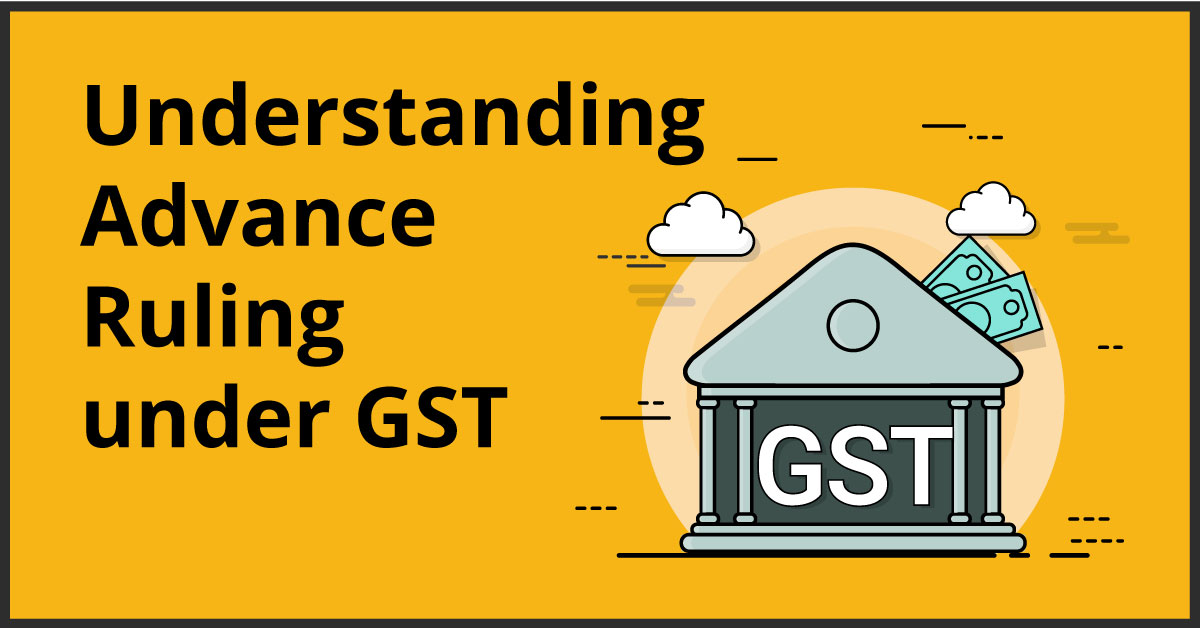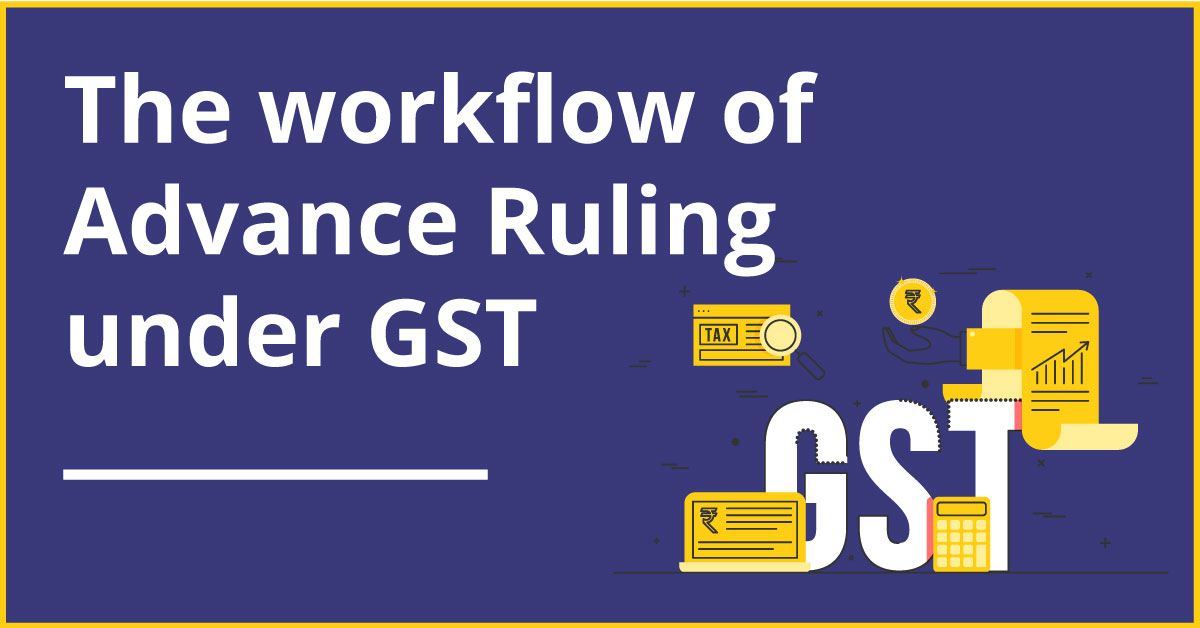

The concept of Advance Ruling was introduced by the Government to provide detailed clarification on the complex provisions of GST.
Any taxpayer having doubts in understanding any provisions of GST can apply for an Advance Ruling.
The article covers all the details you need to know about Advance Ruling under GST as well as the most recent Advance Ruling given by the government on various Sections of the CGST Act.
What is Advance ruling under GST?
An advance ruling, in general, is a simpler interpretation or explanation of the tax laws, as original tax laws are written in complex language & have references to various other tax laws.
Sometimes, it may not be possible for organizations, & even accountants to understand such complex language & provisions.
In such cases, they may raise an advance ruling application& the Tax Authorities provide clarifications to them.
Advance ruling often arises out of uncertainty of the consequences of performing a ruled activity, and so, you should apply for the same before initiating the activity.
Under GST, Advance Ruling is the interpretation of the GST rules, laws & provisions, given by the Tax authorities to the applicants.
Why is Advance Ruling required especially under GST?
An advance ruling is a must under Taxation because the tax laws are complex, written in the professional language of the law, inter-linked with other laws, & bears confusion & uncertainties.
Under GST, Advance Ruling is essentially required, because GST is a new provision & keeps updating & bringing changes to the laws & rules.
Besides, there are many rules-under-rules in GST, and while practically applying GST rules to your filing you will have to consider even the minute details & rules obliged by the government.
Also, as GST is still developing, there are various uncertainties, & rules that lack clarity.
So Advance Ruling is important for the taxpayers to make future decisions for their businesses in order to avoid legal discrepancies & lawsuit troubles.
Advance Rulings can be helpful to all types of taxpayers & avoid the taxpayers, both domestic & international, from drifting away due to the complexities of the GST provisions.
When & How to apply for Advance Ruling?
You must always apply for an Advance Ruling before making the decisions that involve doubtful rules or laws, to get better clarity on your next step you must first understand the laws & its provision with a clear vision.
Mentioned below are the matters specified in Section 97(2) & Section 100(1) of the CGST Act, 2017 (Verbatim):
You will have to apply for an advance ruling by filing submitting FORM GST ARA-01 along with Rs. 5,000 to the Authority of Advance Ruling (AAR), who can further accept or reject the application.
Note- THE ADVANCE RULING WILL ONLY BE APPLICABLE ON THE APPLICANT AND NOT ON OTHER TAXPAYERS.
Working of Advance Rulings & Decision of the Authority:

Now, how does an advanced ruling work? Once you submit the application along with the prescribed fees to the AAR, a copy of your application shall be forwarded to a relevant officer who will then furnish the required clarification.
In case, you are not satisfied with the Advance Ruling by the AAR you can also appeal to the Appellate Authority for Advance Ruling (AAAR), within 30 days from the date of receiving the Ruling from the AAR, along with Rs. 10,000.
The authority will pass their decision within 90 days from the date of application.
Your application can also be rejected, this happens in two cases-
1. A similar matter has already been discussed for the same applicant
2. A similar matter is pending for the same applicant
Section-wise segregation of the Advance Ruling Rules under GST:
Conclusion:
To conclude, it can be said that the provision of Advance Ruling under GST is very important for businesses, to make their future plan & decisions related to their businesses.
Advance Ruling will also attract FDI- Foreign Direct Investment as the rules & the laws are clear for the future tax liabilities of the Investments.
Additionally, it is beneficial for the businesses also, as it helps them to make decisions & save them from the legal disputes & loss of capital.
The major aim of Advance Ruling is to give clarity & certainty to the taxpayers of the various, laws, rules, & obligations under GST, as GST is a modern law for everyone.